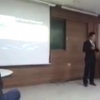When Capitalists Cared
By HEDRICK SMITH
Published: September 2, 2012
IN the rancorous debate over how to get the sluggish economy moving, we have forgotten the wisdom of Henry Ford. In 1914, not long after the Ford Motor Company came out with the Model T, Ford made the startling announcement that he would pay his workers the unheard-of wage of $5 a day.
@rancorous: full of bitterness and anger
Not only was it a matter of social justice, Ford wrote, but paying high wages was also smart business. When wages are low, uncertainty dogs the marketplace and growth is weak. But when pay is high and steady, Ford asserted, business is more secure because workers earn enough to become good customers. They can afford to buy Model Ts.
This is not to suggest that Ford single-handedly created the American middle class. But he was one of the first business leaders to articulate what economists call “the virtuous circle of growth”: well-paid workers generating consumer demand that in turn promotes business expansion and hiring. Other executives bought his logic, and just as important, strong unions fought for rising pay and good benefits in contracts like the 1950 “Treaty of Detroit” between General Motors and the United Auto Workers.
Riding the dynamics of the virtuous circle, America enjoyed its best period of sustained growth in the decades after World War II, from 1945 to 1973, even though income tax rates were far higher than today. It created not only unprecedented middle-class prosperity but also far greater economic equality than today.
The chief executives of the long postwar boom believed that business success and workers’ well-being ran in tandem.
@tandem: bicycle designed for two riders
Frank W. Abrams, chairman of Standard Oil of New Jersey, voiced the corporate mantra of “stakeholder capitalism”: the need to balance the interests of all the stakeholders in the corporate family. “The job of management,” he wrote, “is to maintain an equitable and working balance among the claims of the various directly affected interest groups,” which he defined as “stockholders, employees, customers and the public at large.”
@mantra: a mantra is a word or phrase repeated by Buddhists and Hindus
Earl S. Willis, a manager of employee benefits at General Electric, declared that “the employee who can plan his economic future with reasonable certainty is an employer’s most productive asset.”
From 1948 to 1973, the productivity of all nonfarm workers nearly doubled, as did average hourly compensation. But things changed dramatically starting in the late 1970s. Although productivity increased by 80.1 percent from 1973 to 2011, average wages rose only 4.2 percent and hourly compensation (wages plus benefits) rose only 10 percent over that time, according to government data analyzed by the Economic Policy Institute.
At the same time, corporate profits were booming. In 2006, the year before the Great Recession began, corporate profits garnered the largest share of national income since 1942, while the share going to wages and salaries sank to the lowest level since 1929. In the recession’s aftermath, corporate profits have bounced back while middle-class incomes have stagnated.
@garner: gain, collect
Today the prevailing cut-to-the-bone business ethos means that a company like Caterpillar demands a wage freeze and lower health benefits from its workers, while posting record profits.
@cut/pare/something to the bone: reduce something to the point where no further reduction is possible
Globalization, including the rise of Asia, and technological innovation can’t explain all or even most of today’s gaping inequality; if they did, we would see in other advanced economies the same hyperconcentration of wealth and the same stagnation of middle-class wages as in the United States. But we don’t.
In Germany, still a manufacturing and export powerhouse, average hourly pay has risen five times faster since 1985 than in the United States. The secret of Germany’s success, says Klaus Kleinfeld, who ran the German electrical giant Siemens before taking over the American aluminum company Alcoa in 2008, is “the social contract: the willingness of business, labor and political leaders to put aside some of their differences and make agreements in the national interests.”
In short, German leaders have practiced stakeholder capitalism and followed the century-old wisdom of Henry Ford, while American business and political leaders have dismantled the dynamics of the “virtuous circle” in pursuit of downsizing, offshoring and short-term profit and big dividends for their investors.
@downsize: make it smaller
@offshoring: the practice of moving a company’s operating base
@dividend: the part of a company’s profits paid to people who have shares
Today, we are all paying the price for this shift. As Ford recognized, if average Americans do not have secure jobs with steady and rising pay, the economy will be sluggish. Since the early 1990s, we have been mired three times in “jobless recoveries.” It’s time for America’s business elites to step beyond political rhetoric about protecting wealthy “job creators” and grasp Ford’s insight: Give the middle class a better share of the nation’s economic gains, and the economy will grow faster. Our history shows that.
@be mired in stg: be slumped in stg

 Hogeon's English Presentation - 2012.11.12.
Hogeon's English Presentation - 2012.11.12.
